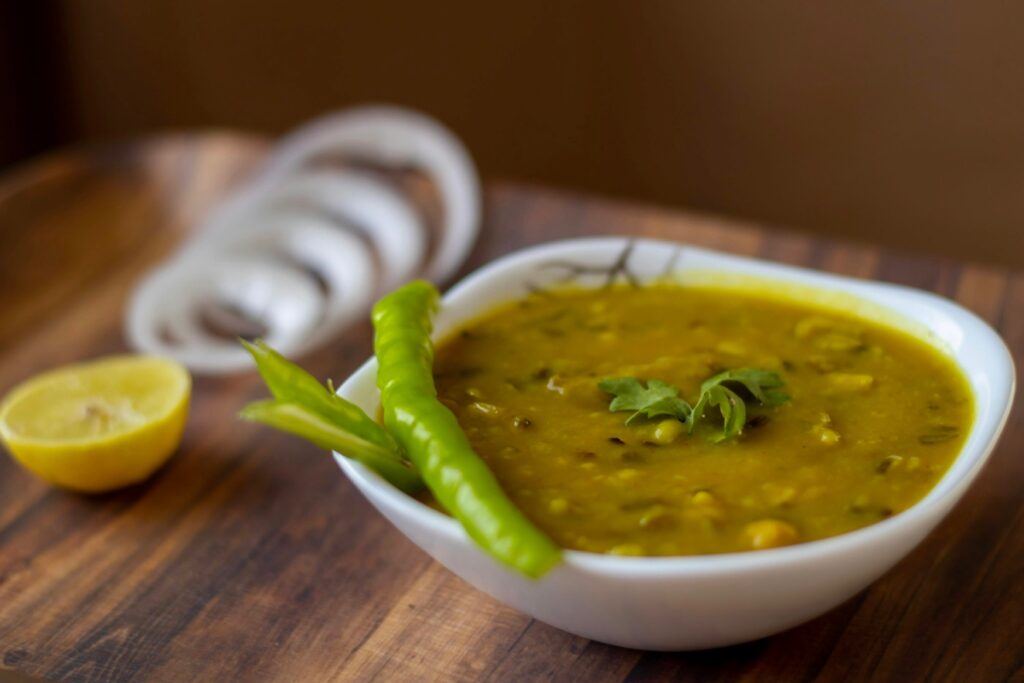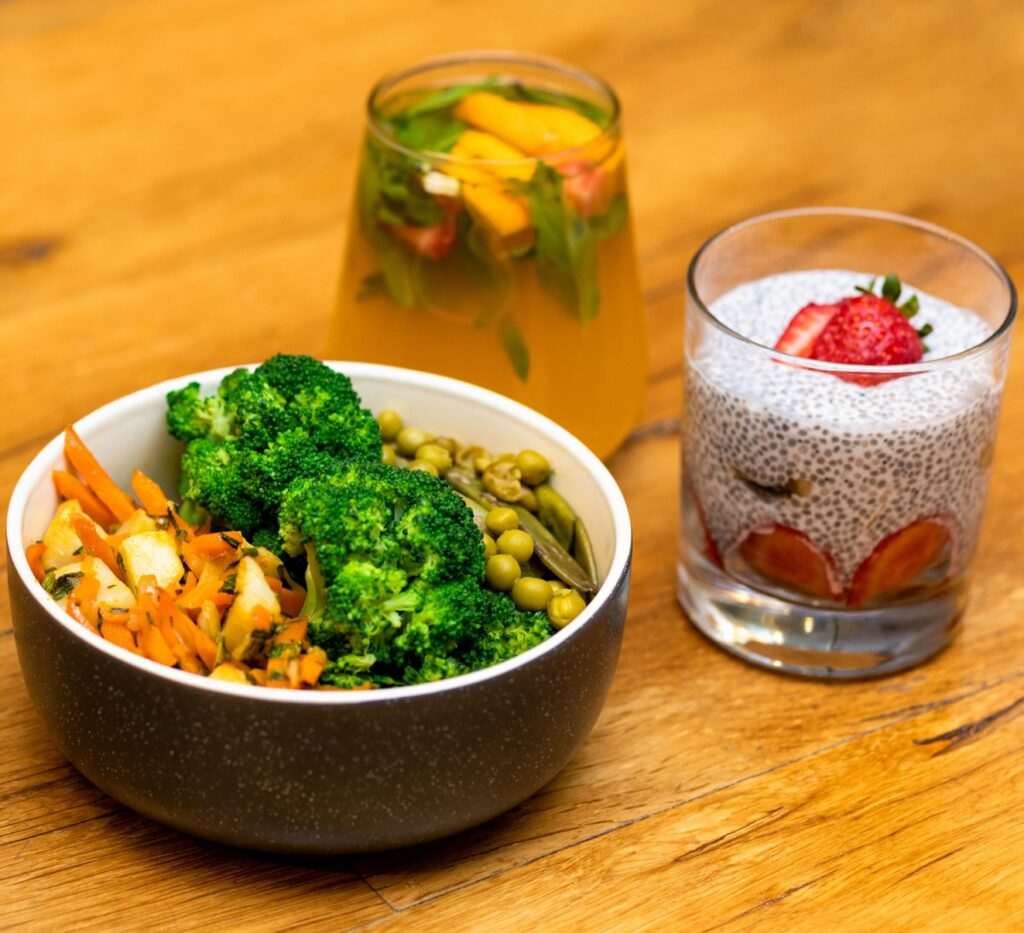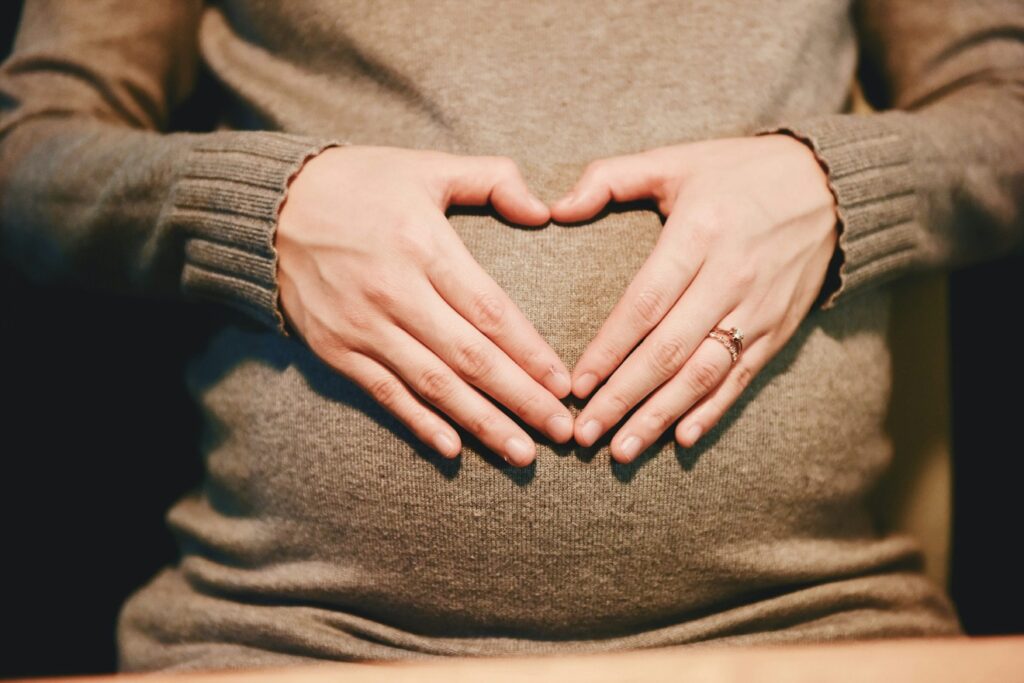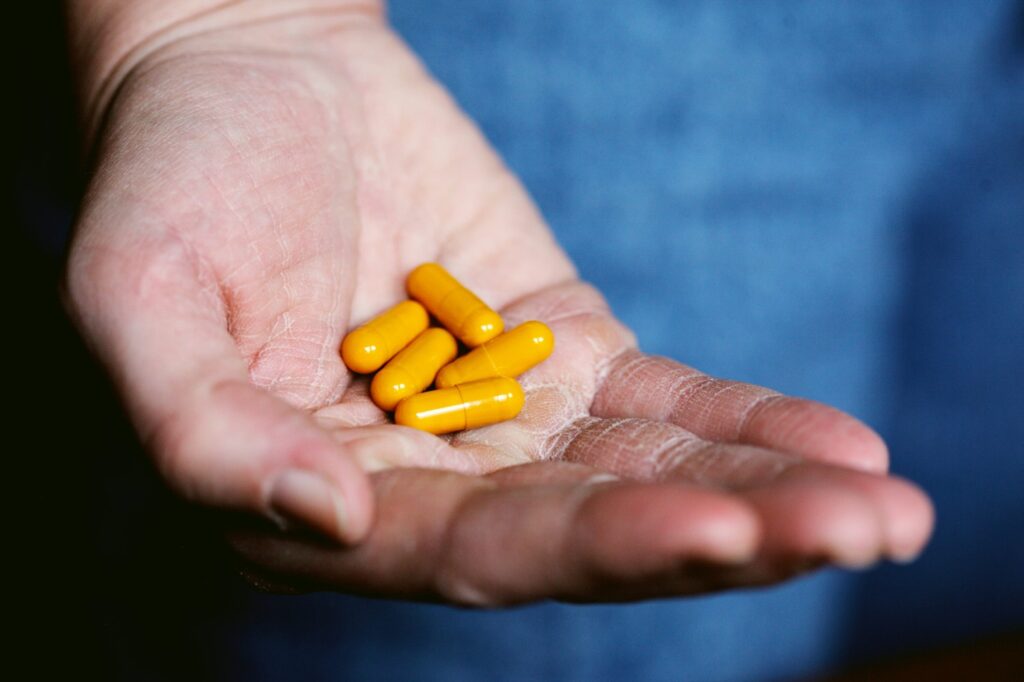Nutrition during adolescence & childhood, plays the most crucial role in early physical & mental development. It also puts a significant impact on the future health & disease as an adult. Childhood is also the most vulnerable period, as the child has a very high chances of developing nutritional deficiencies.
Under-nutrition during this period is related to wasting, underweight and stunting, thus, damaged child’s own health. Undernutrition in early childhood can affect cognition, language and social emotions, hinder later development and have a negative impact on human capital and economic growth.
Over the past couple of years, there has been growing trend in people around the world, who are turning towards veganism. There is no doubt that, vegan & vegetarian diets, if consumed properly (with right knowledge of nutrition), are associated with a decreased risk of various common chronic noncommunicable diseases (NCDs), especially obesity, Cardiovascular disease, type 2 diabetes, and some cancers.
On the other hand, vegan diets are also considered more environment friendly than omnivore diets. Studies have shown that, a well-designed vegan diet is a plant-based eating pattern planned and executed in a healthy and appropriate manner, meaning it is energetically and nutritionally sufficient to meet nutritional recommendations.
However, it involves carefully selecting and preparing a variety of nutrient-rich, whole-plant foods, such as fruits, vegetables, whole grains, legumes, nuts, and seeds, ensuring that all daily nutritional needs are met. Finally, it is necessary to add vitamin B12, and potentially also EPA/DHA and vitamin D to the diet .

Multiple study analysis has shown that, the position that a well-designed vegan diet supplemented with vitamin B12 is healthy and appropriate during these susceptible life periods. However, all of the associations clearly emphasize that a vegan diet requires more careful planning and appropriate supplementation.
On top of that, most kids are picky eaters, and have a higher risk of nutritional deficiencies. On the other hand, a study showed that, more restrictive the diet and the younger the child, the greater the risk of nutritional deficiency. Nutrients of potential concern are protein quantity and quality, iron, zinc, selenium, calcium, riboflavin, vitamins A, D, B12 and essential fatty acids. Although intakes and status of some nutrients (e.g. vitamin D and iron) are low in many children, vegan children are particularly susceptible due to inadequate supply as well as other components that limit bioavailability.
However, let me get you some figures on the nutritional status of the Indian population, irrespective of the type of diets they follow:
- Acc. to a report, 73% of urban rich Indians are protein deficient and 93% are unaware about their daily protein requirements. 68% people in rural and urban India have lower than adequate protein content in their body. 84% of Indian vegetarian and 65% of non-vegetarian diets are protein deficient.
Globally, protein consumption is on the rise, averaging at 68gm per person per day. India has the lowest average protein consumption (at 47gm per person per day) as compared to other Asian countries as well as developed nations.

Indian diets are predominantly cereal-based, and 60% of protein is derived from cereals that have poor digestibility and quality. India is also facing the double burden of malnutrition, with 38% undernutrition (46.6 million) in children under the age of five and about 15% obesity and overweight (14.4 million).
- It is reported that an estimated 500,000 children who are vitamin A-deficient become blind every year, and half of them die within 12 months of losing their sight. Iron deficiency is the main cause of anaemia, with 41.7% of children worldwide having iron deficiency. Protein–energy malnutrition can cause stunting, infections, cognitive and behavioural disorders etc.
Acc. to the Comprehensive National Nutrition Survey of children (CNNSC) between 0 and 19 years in 2019 in India, zinc deficiency was observed in 19% of pre-school children and 32% of adolescents, whereas 23% of pre-school children and 37% of adolescents were deficient in folate. Vitamin B12, vitamin A and vitamin D deficiencies range between 14 and 31% for pre-school children and adolescents.
In fact, studies have found that, there are app. 372 million preschool-aged children and 1·2 billion non-pregnant women of reproductive age with one or more micronutrient deficiencies worldwide.
- WHO suggests consuming more than 400 grams or 5 servings, of fruits and vegetables per day to improve overall health and reduce the risk of certain NCDs. In first time guidance for children and adolescents WHO suggests the following intakes of vegetables and fruits:
- 2–5 years old, at least 250g per day
- 6–9 years old, at least 350g per day
- 10 years or older, at least 400g per day
However, globally, we aren’t growing enough fruits and vegetables to meet World Health Organization consumption recommendations. Only an estimated 20% of people in low- and middle-income countries consume the recommended amount.
When it comes to India, studies have found that, the per capita household vegetable and fruit intake was found to be 145 and 15g, respectively, for rural India, and 155 and 29g for urban India. A significant portion of this intake came from energy-dense food items; potatoes and bananas for vegetable and fruit intake respectively. Further, while wealth marginally improved the diversity in vegetable intake, no such trend was observed in fruit intake.
In fact, reports have shown that, about 98% of India’s adults eat inadequate levels of fruits and vegetables.

- In 2019, the Royal Academy of Medicine of Belgium, an advisory agency for Belgium’s government institutions, released a brief publication suggesting that the consumption of vegan diets poses risks to pregnant women and children. The committee considers vegan diets to be unsuitable and does not recommend them for unborn children, children and adolescents, and pregnant and breastfeeding women.
- Acc. to the European Society for Paediatric Gastroenterology, Hepatology, and Nutrition (ESPGHAN) position paper, concerning vegan diets for infants, “vegan diets with appropriate supplementation can support normal growth and development. Regular medical and dietetic supervision should be given and followed to ensure the nutritional adequacy of the diet. The consequences of failing to do this can be severe and include irreversible cognitive impairment and death…
When a vegan diet is practised, appropriate planning (taking into account recommended macro- and micronutrient intakes) and monitoring (growth and zinc, iron, vitamin B12, and vitamin D intake) should be undertaken by a health care professional”.
3. An Indian study, examined how nutrition outcomes varied among Indian preschool children in relation to the vegetarian status of their parents.
Study found that, compared with children of non-vegetarian mothers, children aged 24–59 months of lactovegetarian mothers were less likely to be stunted and children aged 6–23 months were less likely to be wasted, whereas children aged 6–23 months with vegan mothers were more likely to be stunted.
4. A study, assessed iodine status, in children aged 0–18 years who followed either a vegetarian diet (91), vegan diet (75), or omnivore diet (52). The study, observed a trend to lower iodine values in vegan as compared to omnivore diet. These results suggested that Vegan and Vegetarian children may be more at higher risk of iodine deficiency.
5. A Czech Vegan Children Study, decided to examine the relationship between B12 metabolism and B12 intake through diet and supplementation, in 79 Vegetarian, 69 Vegan, and 52 omnivores children (0–18 years old).
They found that, vegetarian vegan children often do not consume a sufficient amount of animal products (e.g., dairy and eggs), therefore their recommended daily intake for vitamin B12 is not always met, and they tend to have lower levels of cyanocobalamin when not supplemented. Moreover, vitamin B12 supplementation in vegan mothers is crucial for maintaining physiological levels of vitamin B12 in their children.
6. A Polish study, assessed children aged 5–10 y (63 vegetarian, 52 vegan, 72 matched omnivores). Study found that, Vegan diets were associated with a healthier cardiovascular risk profile but also with increased risk of nutritional deficiencies.
They were more likely to have lower levels of vitamin B12, iron, calcium and vitamin D, in their diet. Children on vegan diets had about 5% lower bone mineral content and were on average 3cm shorter in height.

7. A study, recruited 40 Finnish children with an age 3.5 years— vegans, vegetarians, or omnivores. They enjoyed nutritionist-planned vegan or omnivore meals in day care, and the full diets were analysed. Detailed analysis indicated vitamin A insufficiency in all vegan participants. Their serum total, HDL and LDL cholesterol, essential amino acid, and docosahexaenoic n-3 fatty acid (DHA) levels were markedly low.
8. A study, showed that, there is no clear evidence that a vegan diet started in early childhood confers a lasting health benefit. On the other hand, a vegan diet can be potentially critical for young children with risks of inadequate supply in terms of protein quality and energy as well as long-chain fatty acids, iron, zinc, vitamin D, iodine, calcium, and particularly vitamin B12.
Deficiencies in these nutrients can lead to severe and sometimes irreversible developmental disorders. If such a diet is chosen for ethical, ecological, or health reasons, a well-planned, diversified diet with additional supplementation of vitamin B12, vitamin D, iodine, and potentially other micronutrients is crucial to ensure a healthy and nutritious intake during childhood.
9. A systematic review of 30 studies, evaluated the nutrient intake and status of children and adolescents (2–18 y) consuming plant-based (i.e., vegetarian and vegan) diets compared to those of meat-eating children.
Children consuming plant-based diets risked inadequate vitamin B12, iron, and zinc intakes. Therefore, increasing consumption of a variety of plant-based foods, in combination with food fortification and supplementation where needed, is recommended for children and adolescents to have sustainable and nutritionally adequate diets.
10. 10.A meta-analysis of 17 studies, compared the effects of plant-based and omnivorous diets on Bone mineral density. Results indicated that those on plant-based diets (compared to omnivores) exhibited lower BMDs at the lumbar spine and femoral neck, and a reduced whole-body BMD.
11.Even studies, which support the plant based diets in all respects, conclude very strongly that, vegetarians and especially vegans should consume a well-balanced diet and regularly use fortified foods and/or supplements. Special attention should be paid to calcium, iron, vitamin D, and vitamin B12. A deficiency may be exacerbated when supplements are not utilized and when food choices are limited or self-restricting.
12.Similarly, studies have repeatedly advised that, a well-balanced vegetarian diet can provide for the needs of children and adolescents. However, appropriate caloric intake should be ensured and growth monitored. Particular attention should be paid to adequate protein intake and sources of essential fatty acids, iron, zinc, calcium, and vitamins B12 and D. Supplementation may be required in cases of strict vegetarian diets with no intake of any animal products.

Pregnant and nursing mothers should also be appropriately advised to ensure that the nutritional needs of the foetus and infant are adequately met.
13.Acc. to the Position paper of the nutrition committee, German Society for Paediatric and Adolescent Medicine (DGKJ), the nutritional needs of growing children and adolescents can generally be met through a balanced, vegetable-based diet; however, due to their higher nutrient requirements per kilogram of body weight, vegetarian children have a higher risk for developing nutrient deficiencies than adults.
With a vegetarian diet, the mean intakes of some nutrients, such as the omega-3 fatty acid docosahexaenoic acid (DHA), are lower than in omnivores or those eating fish. For other nutrients, such as iron and zinc, the bioavailability from vegetable foodstuffs is reduced when the intake of phytates and fibre is high; thus, the prevalence of iron deficiency can be increased despite high vitamin C intake.
In addition, vitamin B12 is only found in animal-source foods. Vitamin B12 should be supplemented in people of all age groups who follow a strict vegan diet without consuming animal products.
14.Another study by French Paediatric Hepatology, Gastroenterology and Nutrition Group (GFHGNP), stated that, the current craze for vegan diets has an effect on the paediatric population.
This type of diet, which does not provide all the micronutrient requirements, exposes children to nutritional deficiencies. These can have serious consequences, especially when this diet is introduced at an early age, a period of significant growth and neurological development.
Even if deficiencies have less impact on older children and adolescents, they are not uncommon and consequently should also be prevented. Regular dietary monitoring is essential, vitamin B12 and vitamin D supplementation is always necessary, while iron, calcium, docosahexaenoic acid, and zinc should be supplemented on a case-by-case basis.

Despite of all the studies and literature, let me show you some case studies, as to how dangerous the consequences can be when kids are forced to have vegan or some fad diets, their parents fancy:
- In 2014, a Belgian court has given six-month suspended jail terms to the mother and father of a baby boy who died after being fed a diet of vegetable milk. The baby, Lucas, weighed just 4.3kg when he died aged seven months, dehydrated and malnourished.
The parents, ran a health food shop and fed him for four months with milk made from oats, buckwheat, rice and quinoa. The mother did not produce breast milk and the baby had refused infant formula.
2. A Russian influencer (44-year-old Maxim Lyutyi), who promoted a strict vegan lifestyle has been jailed for eight years for causing his new-born son’s death due to an “only sunlight” diet and not giving the infant water and proper food. He had insisted that his baby, who was less than a year old and weighed only about 1.5 kg, could get nourishment mainly from sunlight.
3. A Vegan couple obsessed with “natural” food allegedly starved their two-year-old daughter to death then refused to let doctors treat her. Svetlana Zhiteleva, 36, and her husband Denis Zhitelev, 35, fed little Mana only girl raw vegan food, while forbidding meat, fish, eggs, and milk from her diet.
A post-mortem examination found two-year-old Mana was suffering from anaemia, a chronic eating disorder, coronavirus and developmental delays.
4. A women named Sheila O’Leary, 38, from Florida US, was convicted of six charges: first-degree murder, aggravated child abuse, aggravated manslaughter, child abuse and two counts of child neglect. She was sentenced to life in prison following the death of her 18-month-old son from malnutrition.
O’Leary and her husband, both of whom are strict vegans, fed their 18-month-old child Ezra only raw fruits and vegetables and breast milk. He weighed only 17 pounds, making him about the size of a seven-month-old baby.
5. In a case study, parents of six children faced trial of aggravated manslaughter in the care a 5.5 month old infant who died suddenly and neglect of their four older children for causing them to be malnourished by feeding them all an exclusively raw foods vegan diet.
The fifth child born to a married couple was breast-fed until 2.5 months. Subsequently, the parents fed the baby an exclusively raw foods diet prepared in a blender at home.



